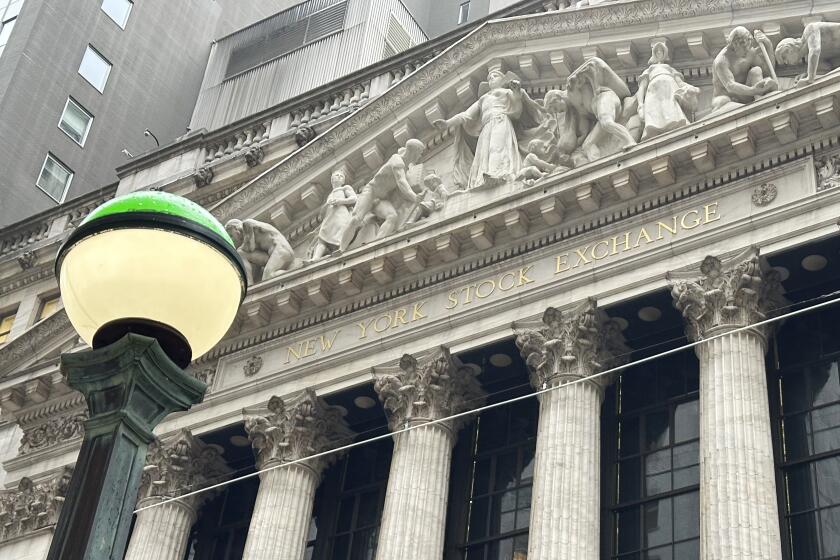Mixed reports on U.S. economy
Growth slowed in some parts of the country last month and private employers hired fewer people than expected, according to reports Wednesday that chime with other weak signals from the economy.
The Federal Reserve said that although the housing market might have turned the corner and inflation risks had not increased, output in some regions was cooling.
“Most Federal Reserve districts reported modest expansion in economic activity since the last report, but several districts noted some slowing,” the Fed said in its “beige book” summary of economic conditions.
But alongside the beige book, which is based on reports by the 12 regional Federal Reserve banks, Chicago Fed President Michael Moskow said that growth remained strong and that it was “much too early to say inflation is no longer a concern.”
“I expect the economy to continue to operate at a high level relative to its potential, which could eventually lead to the emergence of increased inflationary pressures,” he told the Jewish United Fund in a speech in Chicago.
The beige book was compiled on this occasion by the Kansas City, Mo., Fed from data collected on or before Feb. 26, or the day before steep stock market losses last week.
Investors took fright at the convergence of several factors, including problems in the sub-prime mortgage market and declining business spending, which could challenge Fed hopes for a gradual recovery in growth this year.
Analysts said the emphasis the beige book placed on a slowdown did lend the report a slightly dovish slant, but they believed that it still backed up hopes for a steady recovery.
“Despite the slightly downbeat tone of the first paragraph, the details of the report were solid on balance,” said Dean Maki, U.S. economist at Barclays Capital in New York.
He was reassured by the report’s focus on steady retail sales, growing manufacturing and still-strong demand for services.
A separate consumer credit report from the Fed showed that demand for big-ticket items such as cars and holidays had remained strong in January despite slacker credit card spending.
Consumer credit rose at a 3.2% annual rate in January to $2.411 trillion, compared with December’s increase of 2.5%, the Fed said.
U.S. chief executives were also more upbeat, according to a Business Roundtable quarterly survey. Its index of CEO optimism for the economy over the next six months rose solidly to 84.9 in March from 81.9 in December, which had been the lowest reading since 2003.
But regarding job conditions, another key gauge of economic health, a survey by private employment service ADP Inc. added to the mixed picture with its finding that U.S. firms probably added just 57,000 jobs last month, barely half the 100,000 forecast.
The report potentially heralds a weaker reading on February’s employment report, due to be released by the Labor Department on Friday. Economists polled by Reuters expect that 100,000 jobs were created, compared with 111,000 in January.






